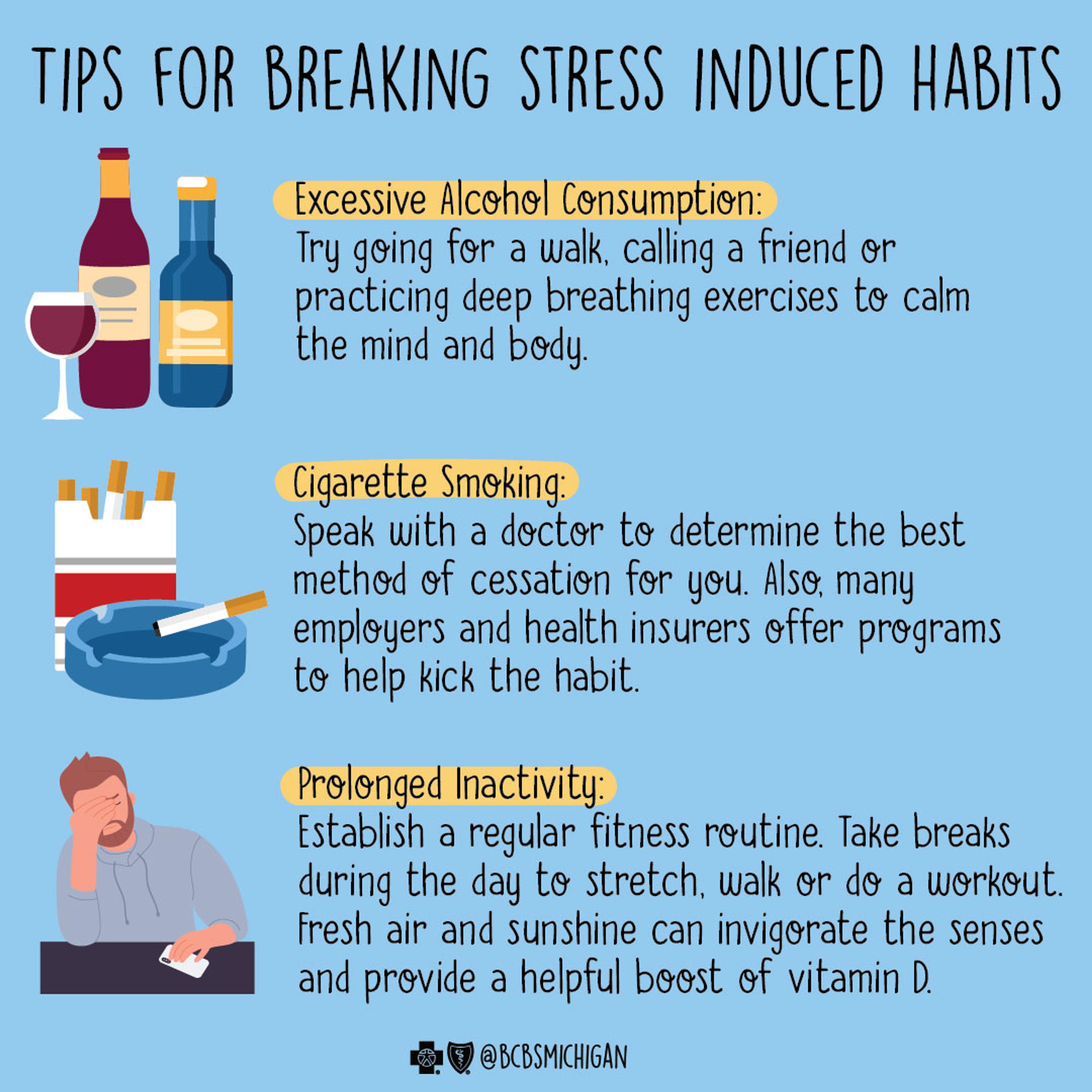Breaking Stress Induced Habits

Dr. Kristyn Gregory, D.O.
| 3 min read
Dr Kristyn Gregory, D.O., is a former medical direct...

Any number of everyday issues can cause us to lean on bad habits as coping mechanisms. However, some of these vices carry side effects that can negatively affect a person’s mental and physical health.
The development of unhealthy habits typically begins with a trigger, which leads to a behavior and then a reward. The reward could be a sense of relaxation or temporary stress relief resulting from the behavior. While they are not always easy to break, with attention and practice, these mannerisms can be replaced with more beneficial alternatives.

Here are a few examples of unhealthy stress relievers and tips to counteract them include:
Cigarette Smoking
According to a community health study, individuals have reported an increased reliance on cigarettes due to the stress relief they feel smoking provided during the COVID-19 pandemic. The dangers of cigarettes are well documented, but experts have learned that the COVID-19 mortality rate was 14 times higher in smokers than in non-smokers, making now an opportune time to consider quitting.
In addition to speaking with a doctor to determine the best method of cessation, many employers and health insurers also offer programs to help kick the habit.
Excessive Alcohol Consumption
Even one glass a day, a new drinking habit can become dangerous quickly if it’s causing distress or interfering with daily life. When alcohol consumption starts negatively affecting a person’s ability to complete routine tasks or productivity, they should seriously consider limiting or eliminating drinking as a form of stress relief.
Instead of reaching for alcohol, try going for a walk, calling a friend or practicing deep breathing exercises to calm the mind and body. Individuals who feel their alcohol consumption has become problematic or believe they may have developed an alcohol dependence should speak with their doctor for help and available resources.
Prolonged Inactivity
Canceled activities and events, remote work and virtual schooling have all contributed to a significant increase in the amount of time people spend at home over the last few years, as well as a decrease in physical activity. Whether outdoors or at home, it’s important to establish a regular fitness routine for physical and mental health. While increased stress levels can hinder a person’s motivation to get moving, too much sitting can lead to major health problems, such as heart disease and obesity. Take breaks during the workday to stretch, walk around the neighborhood or do a quick workout. Fresh air and sunshine can invigorate the senses and provide a helpful boost of vitamin D.
Keep in mind that these feelings are normal. Instead of focusing on the negative aspects of your life, try to focus on building healthy habits that work for mental and physical health, not against them.
Dr. Kristyn Gregory, D.O., is a medical director of Behavioral Health at Blue Cross Blue Shield of Michigan. For more mental health tips, visit MIBlueDaily.com.
Related:
Photo credit: Getty Images





